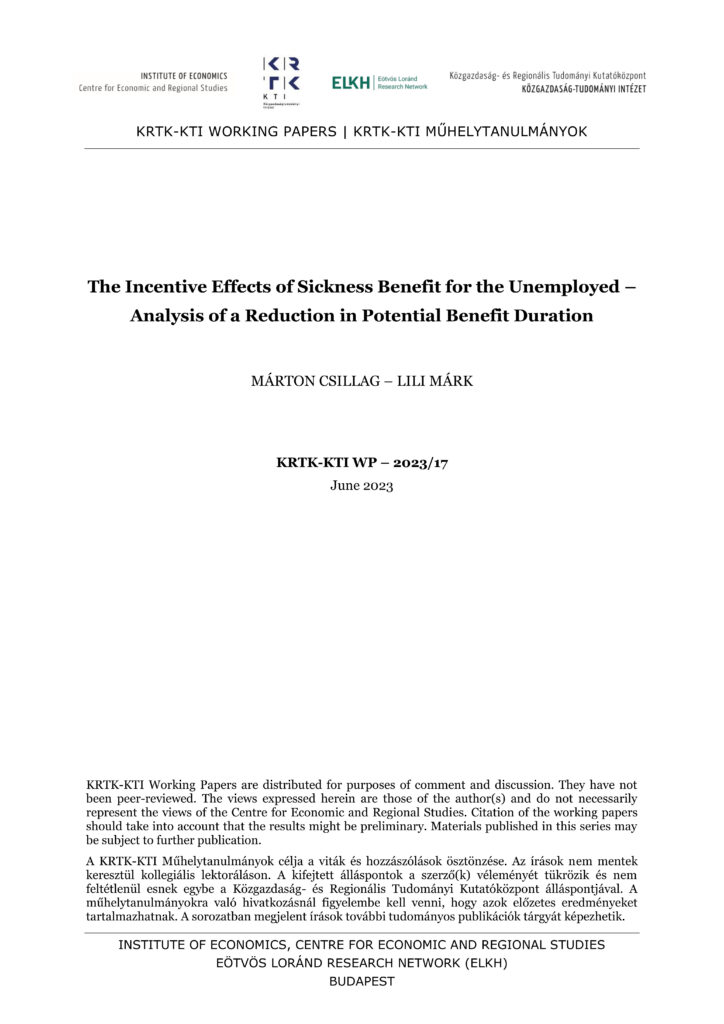In Hungary, employees could claim sickness insurance benefit within 3 days of job-loss, which would enable them to extend their benefit duration by up to 90 days. The maximum number of days of this ‘passive sickness benefit’ was halved in 2007. We first investigate whether claiming passive sickness benefit was related to the monetary advantage relative to claiming unemployment insurance benefits. Then, we explore the effect of potential benefit duration on the transitions to stable employment relying on the variation induced by the policy change. Relying on high quality longitudinal matched administrative data we can estimate these relationships while using controls for employment histories and healthcare spending. On the one hand, we find that passive sickness benefit claiming behavior was indeed correlated with the financial gains. On the other hand, we find only a very small and insignificant immediate effect on transitions to employment when maximum benefit duration was cut by 45 days. However, we find that job finding hazard on the week after benefit exhaustion increased more for individuals who were not on sick leave just prior to job-loss. Our finding is suggestive that a non-negligible proportion of this group were subject to moral hazard.
Publikációk / The Incentive Effects of Sickness Benefit for the Unemployed – Analysis of a Reduction in Potential Benefit Duration
The Incentive Effects of Sickness Benefit for the Unemployed – Analysis of a Reduction in Potential Benefit Duration
- 2023.06.29
- | 14:17


2025
Szep
17
H
K
Sz
Cs
P
Sz
V
1
2
3
4
5
6
7
8
9
10
11
12
13
14
15
16
17
18
19
20
21
22
23
24
25
26
27
28
29
30
1
2
3
4
5
Következő hónap >
a
2025
Szep
17
H
K
Sz
Cs
P
Sz
V
1
2
3
4
5
6
7
8
9
10
11
12
13
14
15
16
17
18
19
20
21
22
23
24
25
26
27
28
29
30
1
2
3
4
5
Következő hónap >

